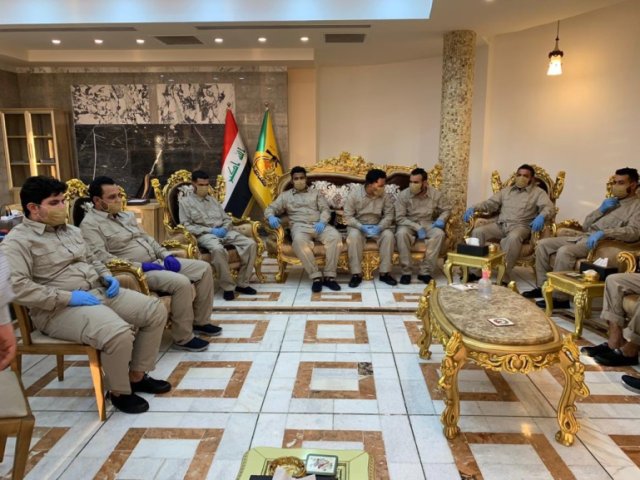The killing of the Iraqi researcher specializing in the affairs of Islamic groups Hisham Al-Hashimi is a tragedy for Iraq, but at the same time it represents a test of leadership, and it may be a political opportunity for Iraqi Prime Minister Mustafa Al-Kazemi to limit the influence of armed groups, according to Indian political analyst and writer Bobby Josh.
Gunmen had shot al-Hashemi last Monday, killing him. Hashemi worked as an adviser to the Iraqi government on terrorism and extremist groups, and over the past year he began focusing on Shiite armed militias, mostly backed by Iran and infiltrated into the security and political systems of Iraq, and his repeated criticism of these militias has caused his anger and hatred for him.
Friends of al-Hashemi say that he received death threats from these groups, although no one has claimed responsibility for the accident, and al-Kazimi has pledged to bring al-Hashemi's killers to justice.
According to the author, the militias are the greatest threat to the social and political system in Iraq, and former prime ministers of varying degrees of enthusiasm have tried to counter the influence of these militias, and none of them has made much progress in this direction. But Al-Kazemi can succeed in what failed in his predecessor, if he could benefit from a set of favorable circumstances, in addition to the Hashemite murder.
Bobby Josh says in the analysis published by the Bloomberg News Agency that Mustafa Al-Kazemi's background makes him uniquely qualified to do this task. As a former Iraqi intelligence chief, he knows more about these militias than any ordinary politician, and his previous job made him develop strong ties with Washington, or more accurately with the CIA, as well as with Tehran.
Another crucial element is the selection of Al-Kazemi to lead counter-terrorism operations in the country, as he reappointed General Abdul-Wahab Al-Saadi, who was removed by former Prime Minister Adel Abdul-Mahdi last year; Which angered the protesters in Iraq.
Iran
Josh believes that Al-Kazemi can benefit from the problems that Tehran faces. Between the US sanctions and the Corona pandemic, Iran finds itself unable to continue supporting the factions loyal to it in Iraq, and indeed has reduced its monthly payments to the Iraqi factions.
Iran was unable to compensate for the loss of its military commander, Qasim Soleimani, who was managing foreign organizations loyal to Tehran, alongside his strongman in Iraq, Abu al-Mahdi al-Muhandis, and the two were killed in a US raid near Baghdad airport earlier this year.
Ismael Ghani, Soleimani's successor, has been struggling with the leadership of the Quds Force in the Iranian Revolutionary Guard to control Iraqi militias, but he has been unable to assemble them around a new local leader like al-Muhandis.
Dismantling the factions
Since he took over the government last May, Al-Kazimi has been vigorously trying to dismantle some armed factions, and has ordered attacks against prominent groups, such as the Hezbollah Brigades, but he quickly released the members of these brigades, who were arrested, and also warned these groups Of its continued missile attacks on American targets, but it has continued.
But what Al-Kazemi lacks is full parliamentary support. Although he pledged to respond to the demands of the Iraqi young protesters who overthrew his predecessor in what is known as the “October Revolution,” Iraqi youth question him as the creator of the “deformed” political establishment.
In order for the Prime Minister to confront the militias, he needs more support from Iraqis from all sects and from the international community.
The truth is that al-Hashemi's killing can serve the position of any accomplished politician The Iraqi researcher was very popular among the demonstrators, who faced bullets and batons of armed groups who were trying to break up their demonstrations.
Despite the decline in the momentum of the October Revolution since the beginning of last spring as a result of the Corona pandemic, and the withdrawal of the support of political and religious leaders, the Hashemite killing can ignite the protests again.
The United Nations, the United States, the European Union, Britain and other countries and international institutions have condemned the killing of Hashemi, and even Iran has expressed regret for his death, and Al-Kazemi can invite these countries and international parties to turn their words into actions, increase intelligence support for his country, and tighten diplomatic pressure on Iran.

